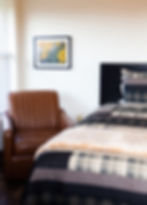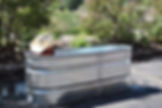


Admission
Process

The fastest way to get in touch is to call our admissions department at (801) 877-1272 or to email us at admissions@chateaurecovery.com
If you are unable to call us, please fill out the form above or chat with us on the corner or the page to submit a confidential message.
Getting In Touch
Admissions are made on an individualized basis. Your unique needs, concerns, and treatment goals are thoroughly reviewed
There are a few general criteria that all prospective residents must meet in order to receive care, including:
-
Ages 26 or older*
-
Able to perform daily activities
-
Demonstrate a willingness to participate in treatment
*Those under this age require strict screening for exception eligibility.
Admissions Criteria
In order for us to be able to provide you with the quickest and most efficient admissions process possible, have the following information ready:
Presenting concerns
Substance abuse history
Medical history
Social history
Past treatment history
Current medications list
Available Info
Chateau may not be a fit for individuals with:
Violent or harmful behavior history
Advanced medical needs
Refusal to follow medical advice
Sexual predatory behavior or registered sex offenders
Unmanaged eating disorders
Active psychosis, mania, or severe group disruptions
Antisocial or Narcissistic Personality Disorders
Chronic pain requiring narcotics or specialized care
Developmental delays (IQ below 80)
Suicidal ideation with an active plan
What We Don't Treat


A Detailed Look
Because our treatment programs are customized to meet your needs, the cost may vary. Factors that influence the cost:
-
Length of Stay
-
Detoxification & Stabilization
-
Insurance Coverage
-
Accommodations
For more information about our treatment costs, contact Admissions.
Cost & Insurance
Chateau Recovery provides semi-private rooms (two residents per room) with full beds and amenities. Our experience and outcomes research demonstrate that residents have a fuller, richer experience when they have a roommate.
A private room may be available, based on clinical and financial needs.
Accomodations
Residents start the day with meditation or yoga, followed by breakfast. The morning includes educational groups, individual therapy, or community meetings.
Afternoons focus on specialty groups, family programs, and doctor consultations as needed. Evenings include lectures, counseling, and therapeutic activities like EMDR, acupuncture, and fitness.
A Day at Chateau
All clients are required to adhere to financial, clinical, behavioral, and medical agreements. This includes timely payment, active participation in therapy, respectful behavior toward staff and peers, and compliance with medical recommendations. Clients must also commit to program guidelines to ensure a safe, supportive, and effective treatment environment.
Client Expectations

Treatment Frequently Asked Questions


Staying in Touch
During Treatment
The Importance of
Keeping Connected
We understand that when an individual is struggling with an addiction or behavioral health disorder, their family members, including significant others, are considerably affected as well.
For this reason, and to ensure the overall success of our residents, we believe that family involvement is critical to the recovery process.
How To Contact Your Loved One
Phone
1-888-971-3070
Mailing Address
Attn: Patient Name
PO Box 280
Oakley, UT 84055
Please Note: Chateau screens all incoming letters, packages, etc. for security and safety reasons.













